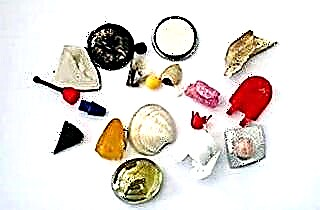Inflammation of the tonsils - or tonsillitis - is an infectious disease, which children are much more likely to get sick in an acute form than adults. But chronic tonsillitis can accompany a person almost all his life, regularly causing him inconvenience in the stage of exacerbation and slowly provoking the development of diseases of other organs and systems. Chronic compensated tonsillitis is most common in adults.
Reasons for development
 Chronic tonsillitis usually develops after an acute sore throat, if they tried to cure it with home methods, or drug treatment was not completed. But sometimes it occurs as a consequence of other chronic diseases: sinusitis, syphilis, tuberculosis, herpes, etc. In this case, the inflammation simply spreads to the tonsils, affecting them gradually.
Chronic tonsillitis usually develops after an acute sore throat, if they tried to cure it with home methods, or drug treatment was not completed. But sometimes it occurs as a consequence of other chronic diseases: sinusitis, syphilis, tuberculosis, herpes, etc. In this case, the inflammation simply spreads to the tonsils, affecting them gradually.
The causative agent of acute tonsillitis is an infection, most often it is bacteria: streptococci, staphylococcus, etc. Getting on the mucous membranes, they provoke the development of inflammatory processes. And additional factors contributing to the exacerbation of the disease are:
- bad habits, primarily smoking, due to which mucous membranes are damaged and immunity is reduced;
- stress, overwork, hypothermia, lack of sleep, vitamin deficiency, unhealthy diet;
- chronic diseases of internal organs: respiratory, digestive endocrine systems;
- occupational conditions that lead to systematic irritation or sore throat;
- exposure to external irritants: smoke, unpleasant odors, dusty or gassed air;
- chemical or thermal burns of mucous membranes: evaporation of household chemicals or toxic substances, too hot food, smoking, etc.;
- a sharp change in climatic conditions or temperature regime.
All these negative factors significantly reduce immunity and thus create favorable conditions for the reproduction of pathogenic microflora.
There is only one way to prevent the transition of acute tonsillitis into a chronic form - by completely destroying the causative agent of the disease and restoring the damaged tonsils. And this requires properly selected drugs: antibacterial, antiviral, antifungal, capable of completely destroying pathogenic microflora.
Compensated and decompensated
 According to the medical classification, chronic tonsillitis has a compensated and decompensated form. It is determined based on the extent to which the tonsils affected by the infection are able to continue to perform their natural protective functions.
According to the medical classification, chronic tonsillitis has a compensated and decompensated form. It is determined based on the extent to which the tonsils affected by the infection are able to continue to perform their natural protective functions.
When diagnosed with "chronic tonsillitis compensated form" constantly inflamed tonsils still continue to protect the body from infection, producing antibodies on its own. A person periodically experiences exacerbations of the disease with all the symptoms characteristic of angina, and then it subsides again.
In the decompensated form, the tonsils themselves become a constant source of toxins and infections in the body. It is she who leads to the development of such serious complications as arthrosis, arthritis, rheumatism, myocarditis, pyelonephritis, renal failure. This is exactly the case when surgical removal of the tonsils is warranted.
How to distinguish
 Decompensated tonsillitis cannot appear without going through the compensated form. Therefore, sounding the alarm and starting a systematic thoughtful treatment is necessary even when the general signs of chronic tonsillitis have appeared:
Decompensated tonsillitis cannot appear without going through the compensated form. Therefore, sounding the alarm and starting a systematic thoughtful treatment is necessary even when the general signs of chronic tonsillitis have appeared:
- increased body temperature within the subfebrile range;
- Loose, constantly red tonsils;
- the presence of purulent plaque on the tonsils and bad breath;
- persistent sore throat and difficulty swallowing;
- in the morning, severe dryness of the mucous membranes and sore throat;
- enlarged lymph nodes with severe pain on palpation;
- the tonsils are closed, their arches are strongly compacted.
With properly selected therapy, compensated tonsillitis is treatable and can even be completely eliminated. Although the treatment process will take more than one month, and sometimes - more than one year. At the same time, the patient's immunity is constantly lowered, and all kinds of respiratory diseases are his frequent companions.
When tonsillitis turns into a decompensated form, new ones are added to all of the above troubles: heart and joint pains, diseases of internal organs, nervous disorders, irritability, kidney disease. The cause of these manifestations is the same infection, which now spreads unhindered throughout the body.
What to do?
Chronic tonsillitis in a compensated form must be treated, otherwise the only way to solve the problem will be surgery. Moreover, the treatment should be systemic and complex, and to start it, there is absolutely no need to wait for the next exacerbation. On the contrary, during the period of decay, the immune system is stronger, so there is a better chance of coping with the disease.
The doctor must prescribe the treatment. He will select the most effective drugs in your case and prescribe physiotherapy procedures. The general treatment regimen looks like this:
 Cleansing the mouth - gargling and washing the tonsils. To do this, use antiseptic solutions: furacillin, chlorophyllipt or potassium permanganate. For rinsing, you can take a saline solution or decoctions of medicinal herbs.
Cleansing the mouth - gargling and washing the tonsils. To do this, use antiseptic solutions: furacillin, chlorophyllipt or potassium permanganate. For rinsing, you can take a saline solution or decoctions of medicinal herbs.- Treatment of tonsils - thorough irrigation of them with effective topical preparations. It can be sprays: "Bioparox", "Hapilor", "Ingalipt", Lugol's solution. For severe sore throat, mixtures containing novocaine or lidocaine can be used.
- Local antibiotics. Usually taken in the form of lozenges. This method of taking the medicine allows you to maximize its action in the area of inflammation. More often appoint "Grammicidin", "Faringosept", "Septefril".
- Antihistamines. Prescribed for the prevention of an allergic reaction to antibiotics, as well as with severe swelling of the tonsils, which they quickly remove: Diazolin, Suprastin, Tavegil, Claritin, etc.
The connection of modern physiotherapy significantly accelerates the healing process: UHF, ultrasound, magnetotherapy, darsonval, phonophoresis, electrophoresis, quartzization, laser therapy.
The prescribed course of treatment must be completed to the end and it is unacceptable to make independent adjustments to it.

 Cleansing the mouth - gargling and washing the tonsils. To do this, use antiseptic solutions: furacillin, chlorophyllipt or potassium permanganate. For rinsing, you can take a saline solution or decoctions of medicinal herbs.
Cleansing the mouth - gargling and washing the tonsils. To do this, use antiseptic solutions: furacillin, chlorophyllipt or potassium permanganate. For rinsing, you can take a saline solution or decoctions of medicinal herbs.

